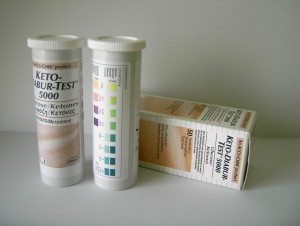Article Contributed By: David Lisonbee, CEO, Twin Town Treatment Centers
 The practice of business and personal ethics is essential when providing treatment for addiction. When patients become commodities to be traded and paid for on the open market like cattle at an auction, how far does that message permeate the entire treatment milieu?
The practice of business and personal ethics is essential when providing treatment for addiction. When patients become commodities to be traded and paid for on the open market like cattle at an auction, how far does that message permeate the entire treatment milieu?
When a referral sources/interventionists are given exorbitant gifts or are secretly paid extraordinary fees for presentations, consultations or the likes, how far away from the cattle auction have you actually strayed?
Trust Is a Fundamental Component of Progress in Therapy
Treatment should be based on the elemental principal of effective therapy: TRUST. Building trust first involves being trustworthy.
Respecting people asking for help includes recommending services which are accessible, affordable and appropriate to their needs. Call centers and referral fees diminish patient identity and places patient need below financial incentive.
In-network vs. Out-of-network
In-network treatment providers are held accountable to Joint Commission standards and insurance contractual conditions. “Out-of-network” providers are not accountable for unnecessary or costly charges. How many times have we heard about a family being misled about the costs of treatment after the provider of treatment posted that they accept insurance?
What the provider actually accepted was out-of-network revenues which are much less than the cost of treatment. The patient ends up paying a significantly higher bill having been led to believe that the insurance company should have covered more.
Pre-Admission Consent
 Pre-admission informed consent provides patients and their families the costs, the benefits and the risks of engaging in a treatment program. Building trust from honest and transparent conversations, Twin Town staff inform treatment candidates about what they can expect.
Pre-admission informed consent provides patients and their families the costs, the benefits and the risks of engaging in a treatment program. Building trust from honest and transparent conversations, Twin Town staff inform treatment candidates about what they can expect.
These realistic expectations become the basis from which a therapeutic relationship can develop. If patients and their families are misled or feel defrauded, no relationship is possible.
How many families receive bad news twice when their loved one checks out of treatment early, and when the provider refused refund the unused portion of what was paid toward that treatment?
Insurance Abuse and Lab Fraud
If a laboratory invites you to share in the proceeds for medically unnecessary and absurdly priced urinalysis testing schemes, do you excuse that as “scholarships” for charity or “investments” of a business nature? How long will access to out-of-network PPO benefits survive under this type of abuse? Have you earned the trust of the patient, their family and the purchaser of care?
Doing the right thing is not easy but it is what sobriety, recovery AND TREATMENT should be all about.
We encourage all providers to set and publish ethical standards on their website. Setting ethical standards helps establish public expectations while distinguishing the responsible provider from the fraud.
Distinguish your organization by:
- Refusing to accept/ pay referral fees or contract with referral mills (internet websites) to increase rates of patient enrollment. The patient and family geographic location, and the clinical needs expressed by the patient and their family are always considered when forming disposition/ referral plans.
- Refusing to mislead patients and their families with statements such as, “We’ll take your insurance and we will accept payment arrangements for the unpaid balance”. In situations where the patient and their family are misled at enrollment, they are later shocked by bills which may exceed tens of thousands of dollars. The reality all along was that the insurance would have only paid for only a few days of residential or out-of-network treatment.
- Refusing to contract with the patient or family for a “flat case-rate” for the entire course of treatment. Under flat case rate agreements refunds are frequently refused and the unused funds are pocketed.
Ethical Standards
Set ethical standards, integrate them into your “brand” and publish them on your website. Twin Town Treatment Centers publishes the following :
- Provide only cost-effective treatment which is quality monitored.
- Before admission, provide full financial and service disclosure, and secure voluntary informed consent. Avoid surprises.
- Seek to protect the dignity and confidentiality of each client patient and their family members.
- Document and provide the treatment that is billed.
- Respect and protect clinical relationships with current and/or prior caregivers. Avoid transferring clients from care of therapists, counselors, psychiatrists and/or physicians.
COORDINATE care with community professionals rather than setting up competitive or fragmented systems of care.
